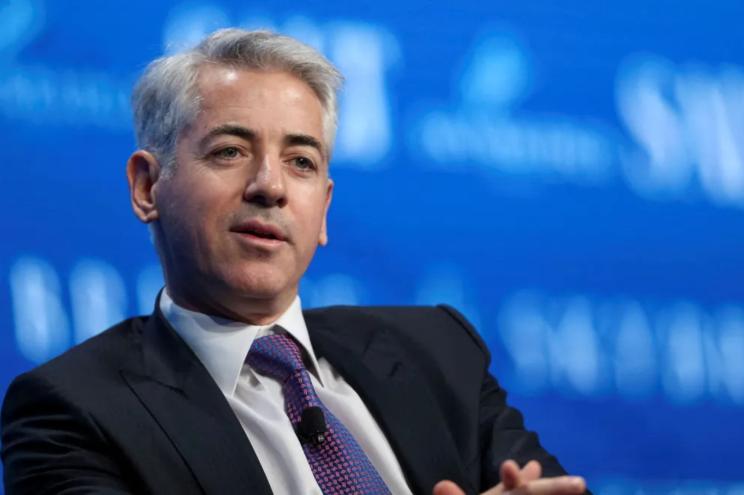
 Bill Ackman is calling for Harvard Corporation “senior fellow” Penny Pritzker to resign for her failures in hiring Harvard President Claudine Gay.REUTERS/Richard Brian
Bill Ackman is calling for Harvard Corporation “senior fellow” Penny Pritzker to resign for her failures in hiring Harvard President Claudine Gay.REUTERS/Richard Brian
For a long time, people (including me) have been calling for major changes in higher education.
Now someone is doing something about it.
Hedge-fund tycoon Bill Ackman is waging war to make universities accountable.
Ackman started his campaign by demanding the resignations of University of Pennsylvania President Liz Magill, Harvard President Claudine Gay and Massachusetts Institute of Technology President Sally Kornbluth after the trio’s shambolic performance before Congress on antisemitic harassment on their campuses.
Magill and Gay are now gone, and Kornbluth is worried.
Penn’s board of trustees pushed Magill out pretty quickly.
Gay, being a diversity hire, was harder to remove, but when evidence of multiple instances of plagiarism came out, her goose was cooked.
(Ackman is calling for Harvard Corporation “senior fellow” Penny Pritzker — the equivalent of board chair — to resign for her failures in hiring Gay, given the latter’s lack of leadership qualities and questionable academic résumé.)
Kornbluth must be getting nervous, but even if she holds on, Ackman’s effort is the first time external pressure removed an Ivy League president.
(Larry Summers was forced out as Harvard president in 2006 after female faculty were unhappy with remarks he made about women’s performance in science, engineering and math, but that was internal pressure.)
A world in which Ivy League presidents have to care what people outside their institutions think is a new world indeed and not a very welcome one to residents of the Ivy bubble.
Ackman is doubling down. With help from artificial-intelligence technology (and his extensive and well-paid research staff), he’s looking for plagiarism among university administrators and faculty, and odds are he’ll find quite a bit.
As a defensive move, the left-leaning press is trying to normalize plagiarism and stigmatize concerns about it as a “conservative weapon.”
Sounds like it knows there’s a widespread problem.
A lot of unqualified people have been promoted in higher-education administration, but they still, at least formally, must check the traditional boxes with dissertations and publications.
Since nobody cared about the work’s quality, though, there was probably a lot of “borrowing” going on. Now it’s much easier to check such things.
So the obvious solution is to devalue plagiarism as an offense.
It was always a firing offense; it will soon be transmogrified into a mere peccadillo or even a blow against a “privileged” system.
But this is where Ackman has them trapped.
If the academy decides plagiarism is no big deal, it clobbers its own reputation.
And if he finds a lot of plagiarism and officials treat it as they traditionally have, they’ll have to fire people, many of whom, given the academy’s priorities, will be “diversity” hires, which will produce major backlash.
You can make too much of plagiarism charges, of course, and as I argued years ago in an ethics book coauthored with Peter W. Morgan, “The Appearance of Impropriety,” many modern charges are overwrought.
(The Latin root of plagiarism means “kidnapping” and referred to the wholesale theft of people’s work, not isolated phrases.)
But not all are, and universities have strict rules.
Indeed, Gay’s plagiarism would probably have gotten a Harvard undergraduate an expulsion or at least a failing grade.
Ackman has them on the horns of a dilemma, and the response — involving attacks on his Israeli wife — will likely lead to him to amplify his efforts.
All these problems could have been avoided if the people in charge of the institutions had just done their jobs.
But universities have been largely free from outside scrutiny for decades, and it hasn’t improved their performance.
That’s likely to change.
Ackman — and he’s not alone — is demanding better boards for universities, and he’s got a good point.
Examining Harvard’s board, economist Tyler Cowen found it to be made up of “quite mediocre” people.
And unlike corporate board members, those on university boards don’t have to worry about liability for doing a bad job.
They’re mostly a rubber stamp for what the administration wants to do.